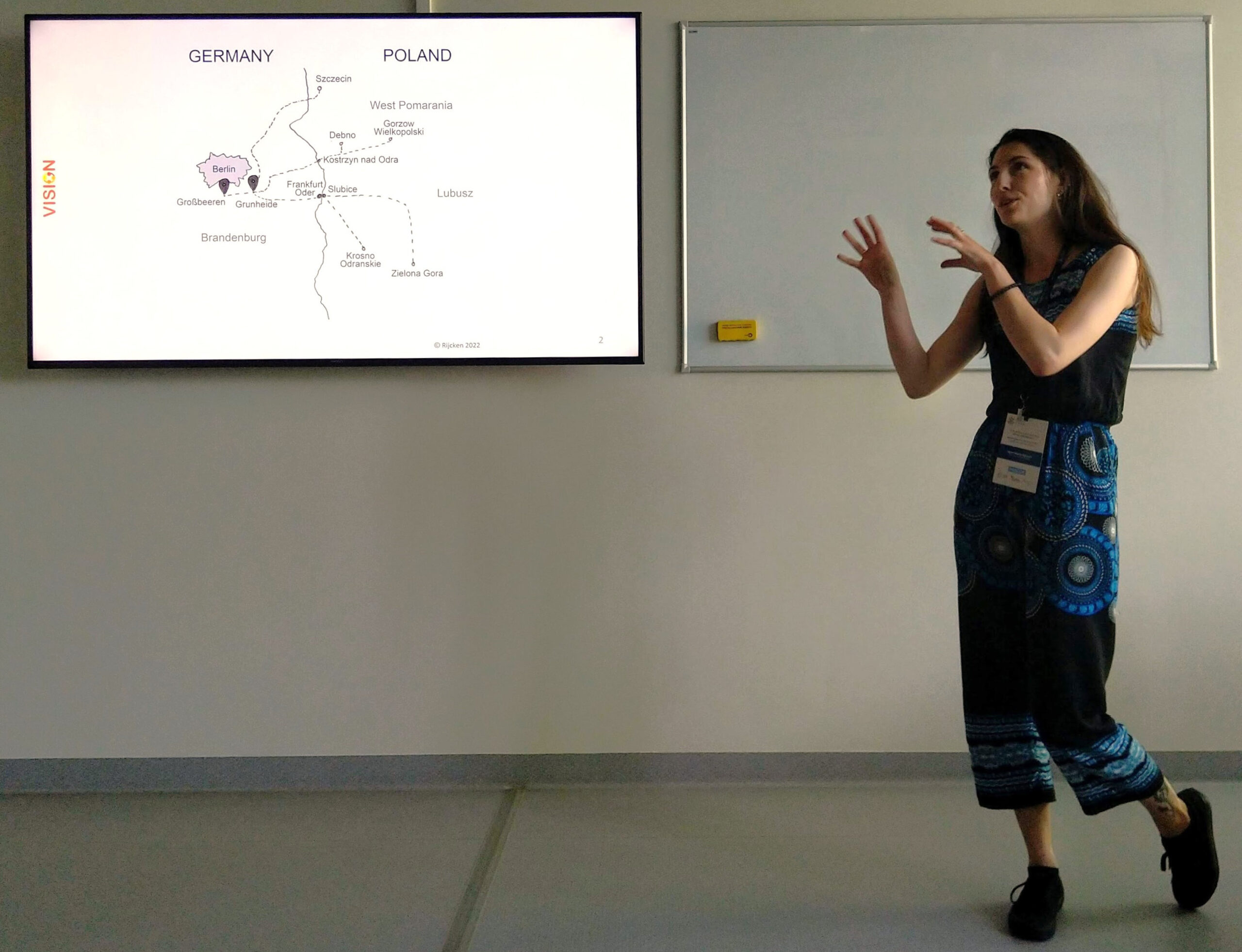Counter-Futures: Transnational Labour Regime and Mobile Workers’ Struggles for Better Futures, session chaired by Magdalena Nowicka and Bianca Szytniewski (The COVID19 pandemic and the war in Ukraine give us a cause to reflect about mobility, inequality and future of work. Restrictions on movement demonstrated that foreign workers are indispensable to the functioning of the economy but the burdens of (im)mobility are unevenly distributed among them. Parallel we witness an evolution of mobility facilitating actors who increasingly institutionalise and professionalise their transnational activities. These actors organise, support, accelerate, and select the departure and arrival of workers within larger mobility infrastructures that encompasses legal frameworks, state policies, non-commercial organisations and local (migrant) communities. The heterogeneity of actors, regulations, contracts, collective agreements, and language barriers, gendered stereotypes, and hardship of mobile work might constrain workers’ agency within the transborder labour regimes. In this panel, we bring in discussion two otherwise separate approaches to labour regimes: one thematising the mobility infrastructures and agency of professional and institutional mobility facilitators, and the second focusing the perspectives of mobile workers and asking how they cope with adverse conditions and create spaces for alternative forms of exercising their rights. Together, these contributions address questions of agency and rights in transnational labour regimes. Instead of dwelling on exploitation and precarity of transborder labour, we want to invert these narratives and open the discussion on counter-futures. The term ‘counter-futures’ is chosen as an umbrella for imagining and debating the possibilities of more ethical, sustainable, inclusive and just labour regimes. Such alternative future projects may counter the existing, settled, prescribed ideas of future offered by industry or politics.)
Convivial feminist methodology in migration and mobility studies: Exploring decolonial and creative ways of knowledge co-production, session organised by Maggi Leung and Kyoko Shinozaki (“Societal impact” and “societal relevance” have become buzzwords in research and proposal writing. While linking research output with larger societal settings in terms of (policy) implications and social problems is certainly necessary, there is much more potential to further strengthen this link, not only by producing “extra” knowledge outlets. But our current knowledge feedback system can also be expanded more fundamentally throughout different stages of research processes, which challenges conventional ways of knowing and producing knowledge (Shinozaki 2021). To be sure, methodological rigor, sophistication and improvement continue to be essential in the “professional” part of our science. At the same time, a need for us scholars to engage with society, neighborhoods and study populations has been debated for quite some time by now. “Public Sociology” (Burawoy 2005) is one such prominent argument for a more “inclusive” kind of social sciences. As the issue of social inequalities is at the heart of social science research — migration and mobility scholarship is no exception here — reflexive engagement with power relations in research processes and knowledge co-production deserves more attention. Feminist scholars have made substantial contributions to problematizing inequalities and hierarchies in field relations. It is a high time to have a conversation about concrete examples of methods borne out of these debates and move forward transformative research practices. This panel brings together a group of scholars in different stages of academic careers from a wide range of disciplines who have been utilizing both an unconventional and creative means of research, beginning from research design through to dissemination. After a brief introduction by the panel organizers, each speaker discusses her/his concrete examples of methods and methodologies developed, opportunities and challenges in own research (5 minutes each). These are “minga” methodology (Riaño 2015), ethnographic filmmaking (Goldstein), photo voice method (Szytniewski), participatory theare method (Kaptani et al, 2020), comic (Mittmasser), and digital story telling (Rijcken). Despite the heterogeneity of actual methods they use, what they all have in common is their shared approach to scientific knowledge discovery by way of 1) researching ‘with’ their study populations, instead of ‘about’ or objectification, 2) mutual learning as experts, and 3) decolonizing research processes through creative/artistic means. In spirit of conviviality, defined briefly as “the art and practice of living together in solidarity and making sustainable communities possible” (Berg & Nowicka 2019), the remainder of the panel invites workshop participants to share their research practices and to discuss other ways through which to democratize ways of knowing and co-produce knowledge in future research.) With single contributions from Piotr Goldstein, Bianca Szytniewski, Iepke Rijken


